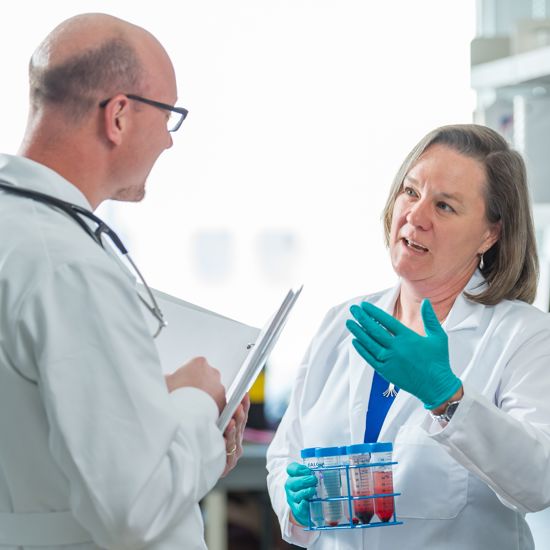- Doctors & Departments
-
Conditions & Advice
- Overview
- Conditions and Symptoms
- Symptom Checker
- Parent Resources
- The Connection Journey
- Calm A Crying Baby
- Sports Articles
- Dosage Tables
- Baby Guide
-
Your Visit
- Overview
- Prepare for Your Visit
- Your Overnight Stay
- Send a Cheer Card
- Family and Patient Resources
- Patient Cost Estimate
- Insurance and Financial Resources
- Online Bill Pay
- Medical Records
- Policies and Procedures
- We Ask Because We Care
Click to find the locations nearest youFind locations by region
See all locations -
Community
- Overview
- Addressing the Youth Mental Health Crisis
- Calendar of Events
- Child Health Advocacy
- Community Health
- Community Partners
- Corporate Relations
- Global Health
- Patient Advocacy
- Patient Stories
- Pediatric Affiliations
- Support Children’s Colorado
- Specialty Outreach Clinics
Your Support Matters
Upcoming Events
Child Life 101
Wednesday, June 12, 2024Join us to learn about the work of a child life specialist, including...
-
Research & Innovation
- Overview
- Pediatric Clinical Trials
- Q: Pediatric Health Advances
- Discoveries and Milestones
- Training and Internships
- Academic Affiliation
- Investigator Resources
- Funding Opportunities
- Center For Innovation
- Support Our Research
- Research Areas

It starts with a Q:
For the latest cutting-edge research, innovative collaborations and remarkable discoveries in child health, read stories from across all our areas of study in Q: Advances and Answers in Pediatric Health.


Diabetes and Endocrine Research at the Department of Endocrinology
At the Department of Endocrinology at Children's Hospital Colorado, we aim to further the understanding of endocrine conditions in developing children and to improve diagnosis and care for the patients we treat.
To achieve this goal, we partner with pediatric specialists from various departments and disciplines, collaborate in multi-center studies and perform basic science, translational and clinical research, including:
- Drug trials to develop new medications for children and bring them to market
- Research studies
- Clinical trials
- Translational research
- Quality improvement projects
Advances in pediatric endocrinology and diabetes
Through our research endeavors, we're able to make the latest innovations, treatments and breakthroughs in pediatric endocrine and diabetes research available to our patients. Some of our team's most significant advancements include:
- The findings of the NIH-funded, multicenter clinical treatment trial Treatment Options for Type 2 Diabetes in Adolescents and Youth (TODAY). Led by Philip Zeitler, MD, PhD, Medical Director of the Clinical and Translational Research Center, researchers found that:
- Over time, youth with type 2 diabetes have increased risks for cardiovascular complications and kidney injury.
- Neither Metformin nor Rosiglitazone stops the progression of diabetes or obesity-related comorbidities.
- Kristen Nadeau, MD, Director of Research for Pediatric Endocrinology and principal investigator of the Restoring Insulin Secretion (RISE) study, tested interventions designed to preserve or improve β-cell function in children with prediabetes or early type 2 diabetes.
- Since 2011, Melanie Cree-Green, MD, the leader of our Polycystic Ovary Syndrome Clinic, has been pioneering breakthroughs by:
- Studying the interaction between glucose and fat metabolism and how their interplay leads to insulin resistance, fatty liver disease and early cardiovascular disease
- Conducting translational research on insulin resistance in girls with PCOS, as well as youth with type 1 and type 2 diabetes
- Identifying new treatments and drugs to target the disease at its roots
Thanks to the dedicated type 1 diabetes research at the Barbara Davis Center, we:
- Pioneered the prediction of type 1 diabetes, developing and using autoantibody assays targeting four major islet autoantigens
- Can now prevent its development in animal models

It all starts with a Q:
For the latest cutting-edge research and innovative collaborations in endocrinology, read more in Q: Advances and Answers in Pediatric Health.

"We plan to be at the forefront of new treatments for obesity, but we also want to be sure that we are doing the right thing for our patients."Megan Kelsey, MD
Ongoing research at the Department of Endocrinology at Children's Colorado
Our research efforts focus on a wide array of topics related to pediatric endocrine disorders, including:
- Type 2 diabetes in children
- Type 1 diabetes
- Polycystic ovarian syndrome (PCOS)
- Obesity and insulin resistance during puberty
- Growth conditions and how they affect factors like:
- Diet
- Hormone actions
- Diabetes
- Genetic markers
- Therapies
- Hormone function, metabolic health and neurodevelopment in children with X&Y chromosome variations, including Klinefelter and Turner syndromes
- Hormonal abnormalities in survivors of childhood cancer and other chronic illnesses
Our ongoing type 2 diabetes research
In an effort to better manage and treat the growing number of children and adolescents with type 2 diabetes, our researchers are conducting multiple studies for youth with pre-diabetes and type 2 diabetes. Our goal is to:
- Understand the development of type 2 diabetes, including the pathophysiology and psychosocial aspects of obesity and type 2 diabetes
- Expand the number of treatment options
- Identify treatment alternatives that best preserve beta cell function for the cells that produce insulin
Megan Kelsey, MD, is conducting research to develop early interventions to prevent type 2 diabetes in obese youth. Dr. Kelsey is specifically studying puberty and is working to:
- Understand the factors that make some pubescent children more likely to develop early type 2 diabetes
- Delineate developmental aspects of insulin resistance during puberty in children with and without diabetes
- Understand insulin resistance and associated morbidity in obese children and adolescents
- Develop new approaches to screening for comorbidities in obese children and adolescents
Our ongoing type 1 diabetes research
For over a decade, our team has been performing in-depth studies of youth with type 1 diabetes. At the Barbara Davis Center – one the few sites selected for both pediatric and adult multicenter studies – our diabetes experts are studying:
- How to prevent type 1 diabetes
- The management of type 1 diabetes
- Gaps in therapeutic efficacy
- The correlation between type 1 diabetes and cardiovascular disease, renal dysfunction, mitochondrial dysfunction, insulin resistance, Metformin and Bromocriptine QR
What our diabetes and endocrinology research means for kids
At the Department of Endocrinology at Children's Colorado and the Barbara Davis Center, we envision a future with more effective therapeutic treatments for diabetes, one where:
- The of care for kids and adults with type 1 diabetes is manageable, safe, comprehensive and successful
- We've reduced and prevented the long-term complications of inactivity and obesity
- Future pediatric type 2 diabetes treatments will be better informed and more effective
And as one of the only organizations performing in-depth studies of pediatric PCOS patients, it's our goal to build a more promising future for girls with PCOS. Our researchers are working to minimize the risk of complication and improve morbidity and mortality in girls with PCOS by:
- Studying associated metabolic complications
- Testing the efficacy of current and new medical options
- Performing quality improvement projects for the diagnosis and management of PCOS
- Utilizing new care delivery models
This means improved outcomes, more efficient treatments and improved care for pediatric and adolescent PCOS patients.



 720-777-0123
720-777-0123





